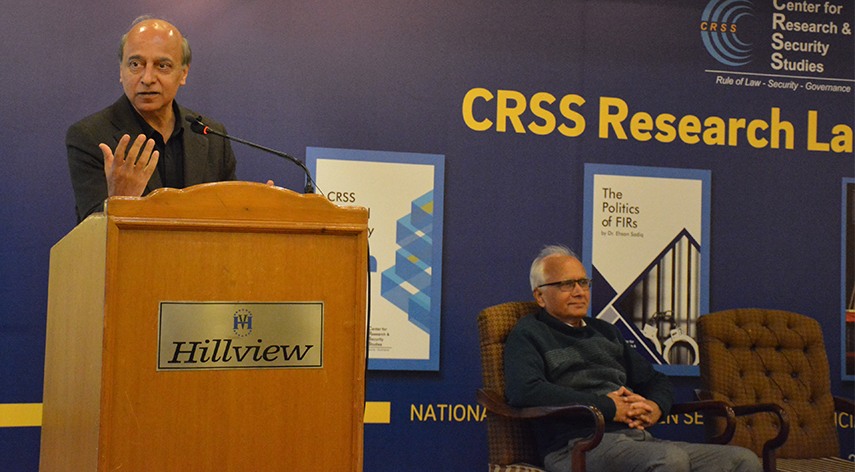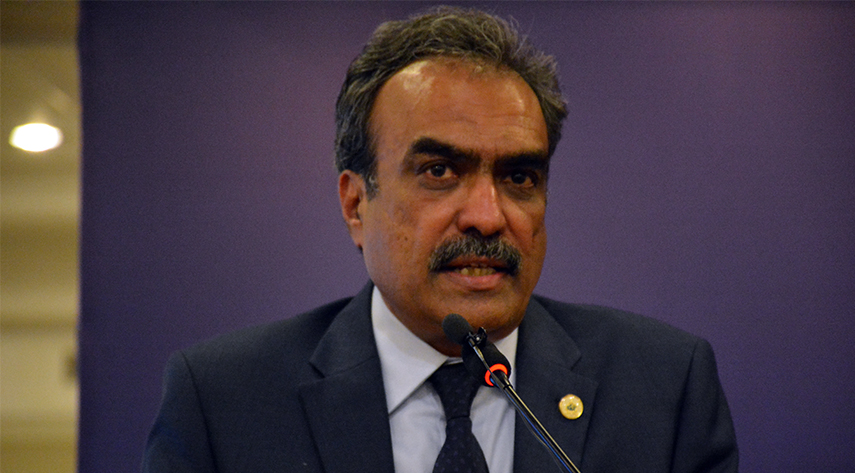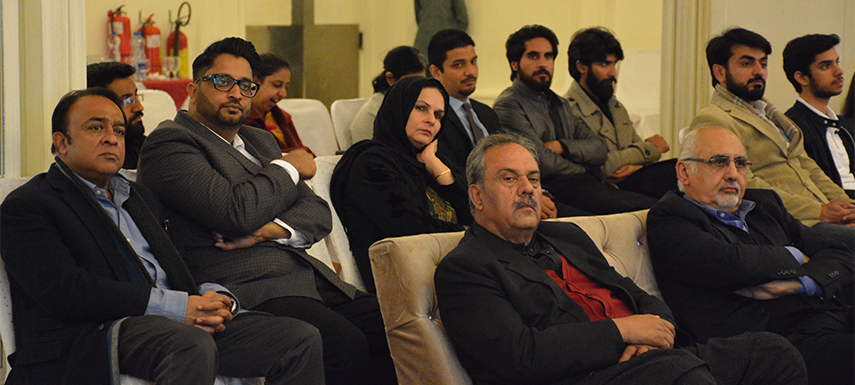The criminal justice system in Pakistan can be improved considerably by implementing stated FIR reforms, recommended the Additional Director of the Federal Investigation Agency (ADG FIA) Dr. Ehsan Sadiq. He was speaking at a research launch event for the Center of Research and Security Studies (CRSS) in Islamabad on Monday.
The event centered around the launch of four research publications that look at national security in Pakistan from a variety of socio-economic and cultural perspectives. Executive Director CRSS, Mr. Imtiaz Gul stated that empirical research forms the basis of all programmatic endeavors, and should be the go-to resource for any and all formal policy interventions.
Dr. Sadiq stated that a range of factors have rendered the FIR in Pakistan a complex phenomenon and a constant battleground for social and legal wrangling. He also reviewed the legal framework, relating to the registration of an FIR, explained reasons for non-registration and remedies available in case of non-registration. Finally, he shared the past efforts to resolve this issue and evaluated their impact and implementation.
The CRSS Annual Security Report 2019, authored by Muhammad Nafees and Zeeshan Salahuddin states that there were no drone strikes in the country in 2019, a first since 2004. Consolidating its position in its fight against terror, this year Pakistan observed 30.71% drop in terrorism, reducing from 980 fatalities in 2018 to 679 in 2019.
Mr. Talha Ali Madni shared some shocking ramifications of unnecessary judicial activism in Pakistan. He stated that the total cost of just four instances is PKR 9.9 trillion, including PKR 1,244 billion in penalties and losses, and PKR 8,505 billion in loss of opportunity. Finally, Mr. Arslan Alvie apprised the audience that South Asian countries still rely on responsive approach rather than proactive, as a common proactive in the developed countries. Karachi, being the biggest city in Pakistan, contributes 20% to Pakistan’s GDP and controls about 80% of Pakistan’s import. If struck by a natural disaster, this would wreak havoc on Pakistan’s economy.
This was the first research launch event by CRSS of 2020. The next call for papers will be announced later in the week, and the second launch event will be conducted in May, featuring brand new research into the security landscape of Pakistan.




